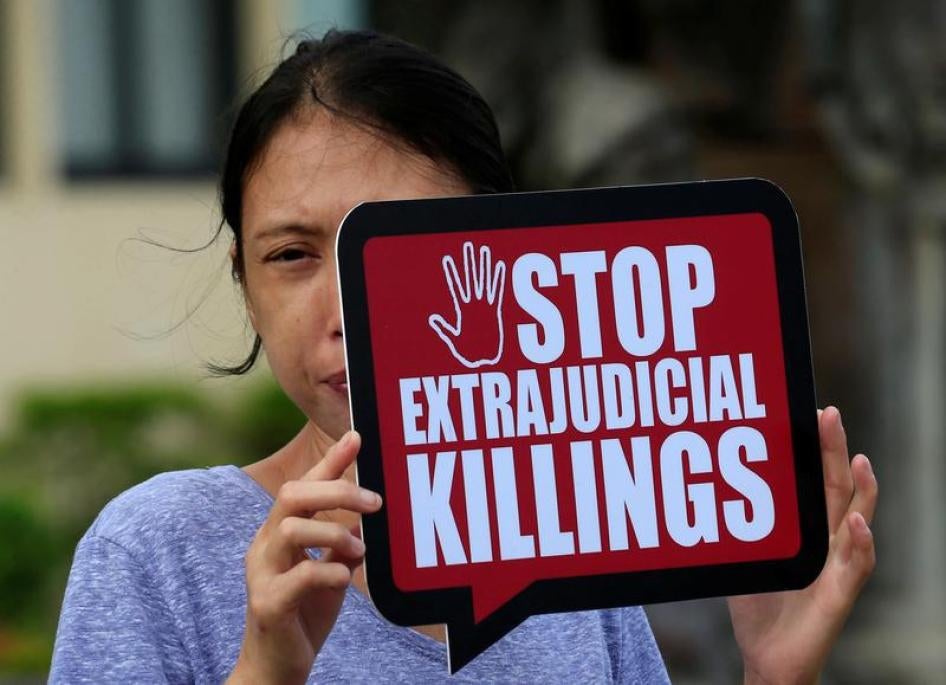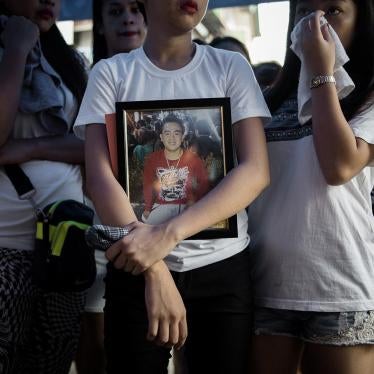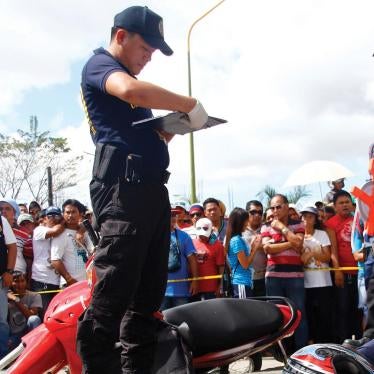"We deplore the extrajudicial killings in the Philippines," Australian Prime Minister Malcolm Turnbull said on Melbourne radio in August.
But will Turnbull have the courage to say those words directly to Philippine President Rodrigo Duterte in Manila on Monday, on the sidelines of the East Asia Summit?
Turnbull has said the focus of his visit will be on counterterrorism. But he also needs to plainly and publicly condemn extrajudicial killings in the Philippines to ensure both Duterte and the Filipino people are clear about where the Australian government stands.
Australia joined 38 other countries in demanding an end to the killings in a United Nations joint statement in September.
However, Australia has been shy to raise concerns publicly during bilateral visits, which has allowed Duterte to milk these visits as expressions of support for his murderous "war on drugs".
Mixed messages
Twice, Duterte has downplayed Australia's privately raised concerns about human rights in meetings with Foreign Minister Julie Bishop this year. After their March meeting, he said, "We never discussed human rights. They are so courteous."
After an August meeting, he said Australia had "considerably toned down" its criticism of human rights concerns in the anti-drug campaign.
In both cases, Bishop has disputed his version of events, but only once she had left the Philippines.
In August, Australia's spy chief Nick Warner made headlines by posing for a photo "fist-bumping" Duterte. For many Filipinos, the photograph adopting Duterte's signature "iron fist" pose was a sickening endorsement of his deadly drug policies. Yet Warner never issued a statement to correct this view. Bishop simply said that he was responding to a request from the president.
Families torn apart
Since taking office, President Duterte has created a human rights crisis in the Philippines.
More than 12,000 people have been summarily executed in the past 15 months by police and police-backed vigilantes who are targeting suspected drug dealers and users.
Its victims are predominantly the urban poor, including children.
Aljon and Danila Mesa, two brothers killed six days apart in September 2016 are two such victims of this drug war.
Their mother told Human Rights Watch: "When we saw our son in the river, he was covered in packing tape and floating." He had been shot execution-style through the mouth.
Because the family had just paid for Aljon's funeral, they were unable to raise funds for Danilo's and he was buried in a mass grave.
This killing campaign was instigated enthusiastically by the President, who has cheered on the soaring body count.
Speaking for the voiceless
Duterte's anti-drug campaign has also seriously harmed free speech and political space in the Philippines.
A senator and vocal critic of the "drug war", Leila de Lima, has been jailed since February on spurious and politically motivated charges.
Duterte has repeatedly threatened human rights advocates, journalists and lawyers.
Given the limited space for Filipinos to speak out on these issues, it's even more important that foreign leaders speak up.
Australia sometimes deliberately overlooks serious human rights concerns in Southeast Asia from a misguided assumption that they are an obstacle to other strategic interests. A case in point: Australia recently chose to upgrade diplomatic relations with Cambodia while the country is in the midst of a human rights meltdown — its opposition leader jailed, politicians exiled, media outlets shuttered or sharply curtailed, and civil society groups under attack.
Partnering against ISIS
In recent months, Australian officials have deepened ties with the Philippines' armed forces, concerned about the spread of ISIS in the region.
In October, Defence Minister Marise Payne announced expansion of assistance to the Philippine armed forces.
This includes urban warfare counter-terrorism training, assistance in intelligence-gathering, surveillance and reconnaissance; strengthening information sharing arrangements; and enhanced maritime security engagement and bilateral maritime patrols.
Certainly, Australia should address this danger to the region.
Left unchecked, pro-ISIS armed groups in the Philippines could "morph into a new, more militantly Islamist insurgency than anything the Philippines has seen before," says Jakarta-based analyst Sidney Jones.
But Australian support on counterterrorism should not mean silence on Duterte's abusive drug war. The Philippine people need to hear directly from the Prime Minister where Australia stands.
Someone who admitted being "happy to slaughter" drug addicts is someone who needs to be held to account.
The human rights disaster that Duterte has inflicted on the Philippines needs to be met with a strong response from the Philippines' partners, like Australia, who are committed to protecting human rights and the rule of law.
Turnbull can demonstrate Australia's commitment to those values by having the courage to unambiguously denounce Duterte's extrajudicial killing campaign.
Duterte could one day be hauled before the International Criminal Court investigating alleged crimes against humanity, so Australia needs to find its voice and condemn these crimes before the body count climbs even higher.









